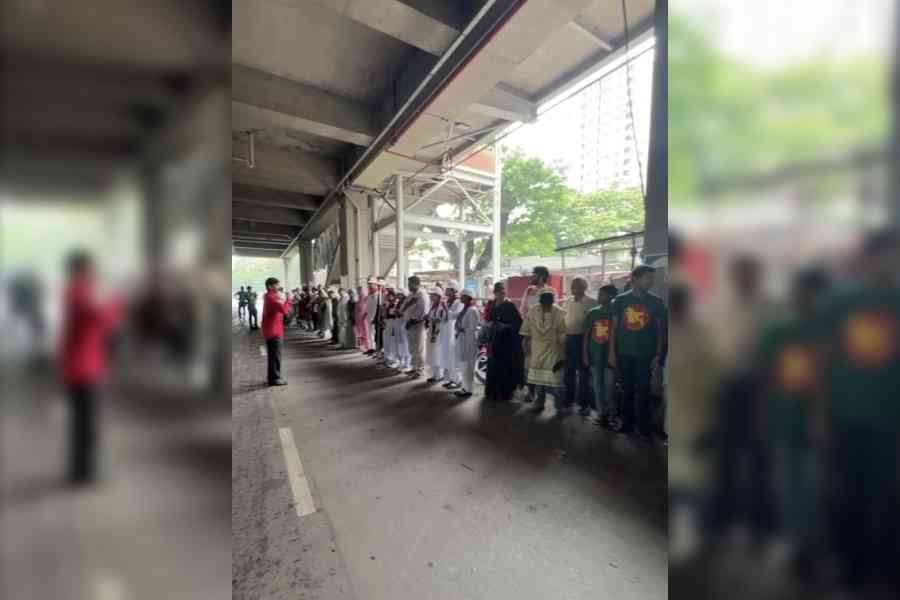Bangladesh witnessed the first concrete resistance against the demand for a change in the country’s national anthem and the Constitution on Friday as hundreds of people organised human chains across 20-odd districts, including capital Dhaka, and sang Amar Sonar Bangla, an ode to motherland, written by Rabindranath Tagore.
Udichi Shilpi Gosthi, a socio-cultural organisation, had called upon the people of the country to sing the national anthem and hoist the national flag to protest against the call for a change in the national anthem as articulated by Brigadier General (suspended) Abdullahi Aman Azmi and supported by some Islamist organisations.
“We are more or less satisfied with the response that we got to our call... People in at least 20 districts celebrated our national anthem, which is part of our identity, in open areas,” eta Imam, assistant general secretary of the Udichi Cultural Committee, told The Telegraph.
“In some districts, they could not hold the programme today... They will organise it tomorrow,” she added.
The demand for a change in the national anthem and the Constitution by Azmi, son of Bangladesh Jamaat-e-Islami’s former Amir Ghulam Azam, has triggered a debate in the country, known for sharp differences between those who believe in the ideals of the 1971 Liberation War and those who oppose it.
Recent developments in Bangladesh, after the fall of Hasina, have given rise to an impression that forces like Jamaat-e-Islami and other Islamist organisations, which opposed the ideals of the Liberation War, have begun wielding more power in the running of the country’s affairs.
Against this backdrop and the social media tirade against Udichi for organising such a programme, there were apprehensions that the attempts at celebrating the national anthem would face resistance.
“We did not face any resistance... There were the police and the army, but no one stopped us,” said Imam, who took part in the programme held on the road opposite
the National Press Club in Dhaka.
“The best thing is, ordinary people, including those who were passing by and rickshaw pullers, stopped and joined us when we were singing the national anthem,” she added, before mentioning that some other organisations like Khela Ghor also took part in it.
According to Imam, a confusion among ordinary people that the programme was organised by the Awami League came in the way of larger participation. “The programme did not have any political objective... We wanted to let the world know that we love our national anthem as it is a part of our history and identity.
The defeated forces of the 1971 war have been conspiring to change the national anthem and we would resist it,” said Imam.
During the student-led movement demanding reforms in the quota system in government jobs, which led to the fall of the Sheikh Hasina government, Udichi came out in full support of the protesting students.
Later, when the movement snowballed into a larger rebellion against the government, differences had cropped up among the members of the organisation following which the banner of Udichi was not visible in the movement.











